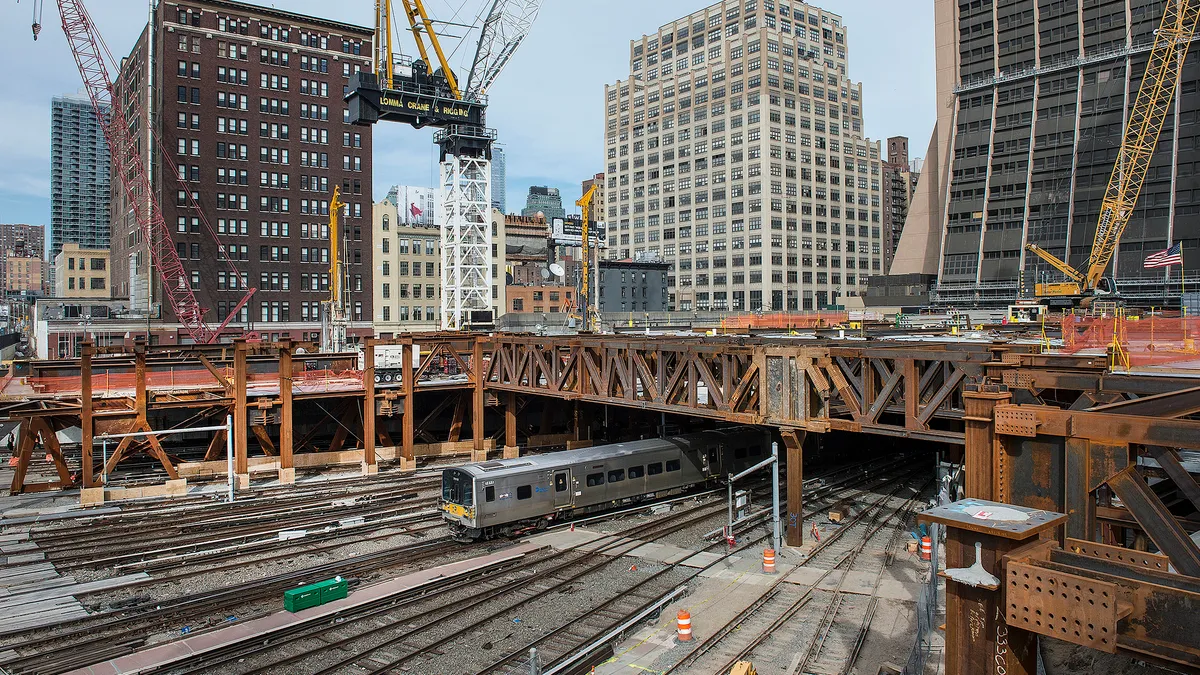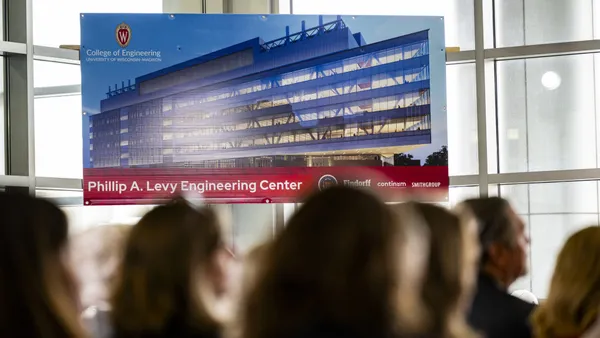Dive Brief:
- The first skyscraper at the 28-acre, $25 billion Hudson Yards development in New York City is open for tenants, and 300 Coach employees now call the 52-story, former "Tower C," home, Bloomberg reported.
- Aside from Coach, companies such as L’Oreal USA, SAP AG, VaynerMedia and Boston Consulting Group will also soon be relocating to the fully leased 10 Hudson Yards skyscraper.
- The Hudson Yards development is the site of former rail yards leased from the Metropolitan Transportation Authority and part of the westward expansion of the Midtown business district. Developer Related said its next phase of construction will necessitate building on a platform over the rails.
Dive Insight:
Other Hudson Yards buildings are in various stages of construction, and Related is currently leasing those as well. Hudson Yards will also be home to two cogeneration plants, which produces approximately 60% of the area’s power and pushes it to the buildings’ microgrids, The Wall Street Journal reported.
Tishman Speyer is one of the most prominent developers on the Hudson Yards project. Tishman Speyer is currently working on two skyscrapers — a 1.3 million square foot tower and the Bjarke Ingels Group high-rise dubbed "The Spiral," which features landscaped terraces winding their way around the building's exterior.
Contractor Tutor Perini was the contractor for 10 Hudson Yards and is working on Tower "D," a 70-story residential tower with 391 units. Neiman Marcus is expected to anchor the retail portion of that tower. Tutor Perini is likely relieved to put the 10 Hudson Yards project to bed, as the general contractor reported earlier this year that its 2015 earnings were $500,000 lower than expected, largely because of losses on that building. The contractor called it the "first major loss for Tutor Perini on a fixed-price contract in the past 20 years."
However, Hudson Yards overall has proven to be an economic boon to the city. A recent Appleseed study determined that the development will generate $18.9 billion for New York by the time the entire project is built out. The study also found that Hudson Yards will comprise 2.5% of New York City’s gross domestic product and pay almost $500 million in city taxes annually.












